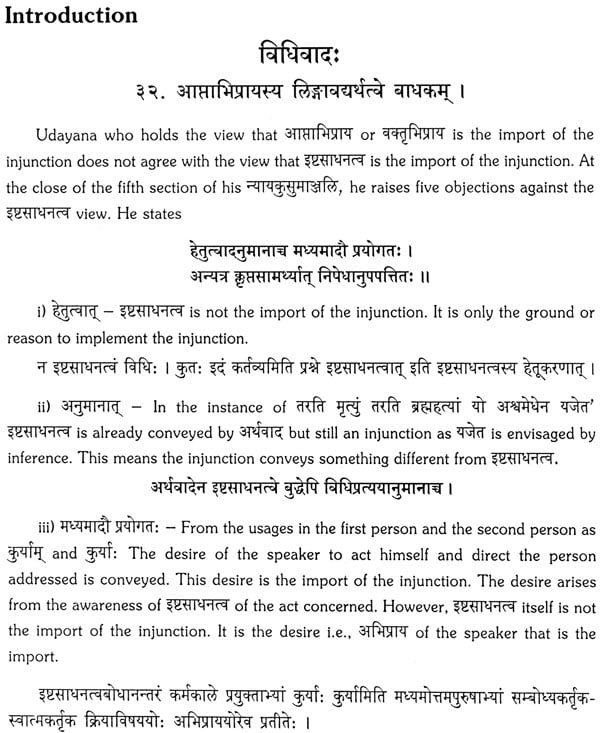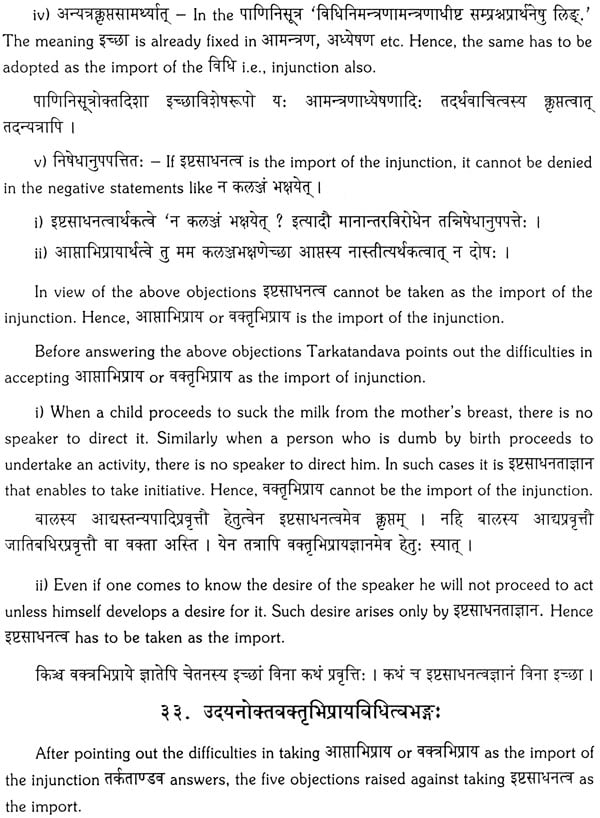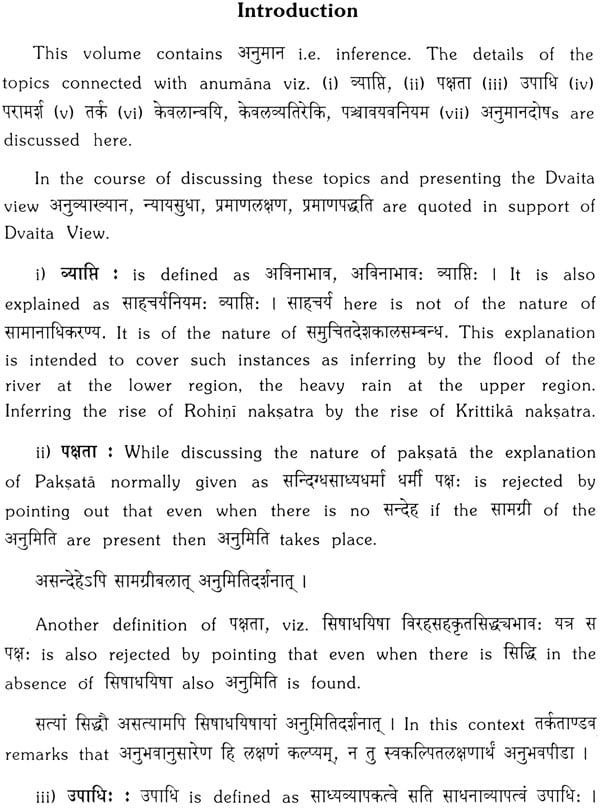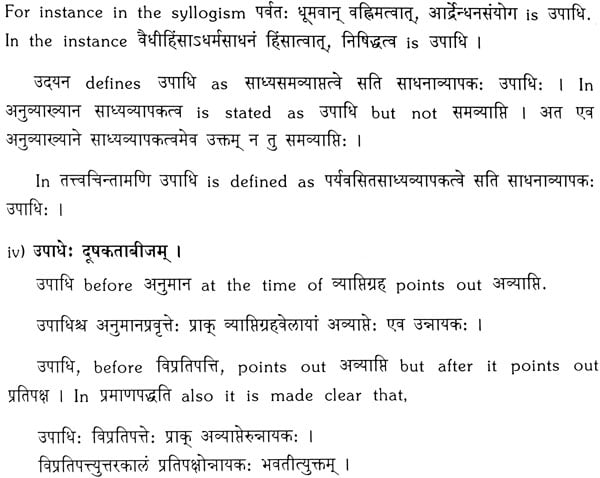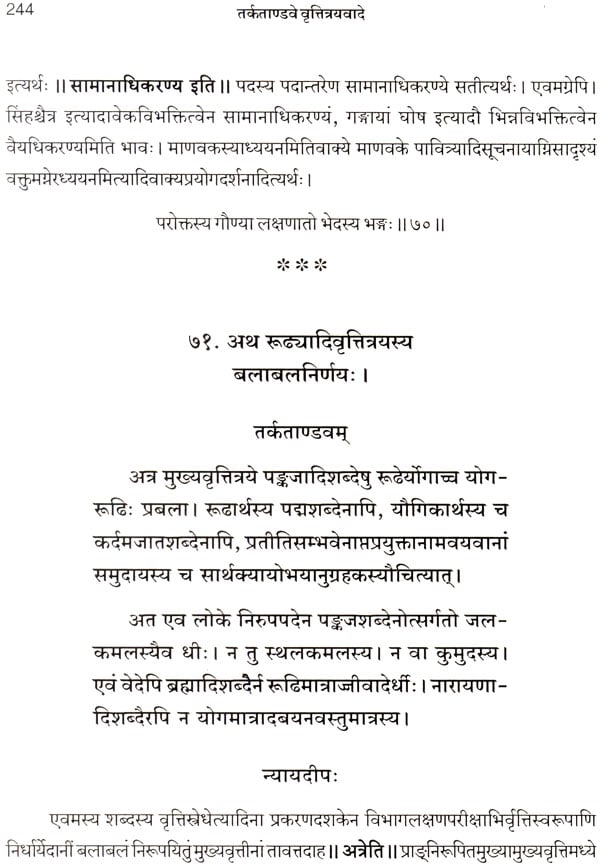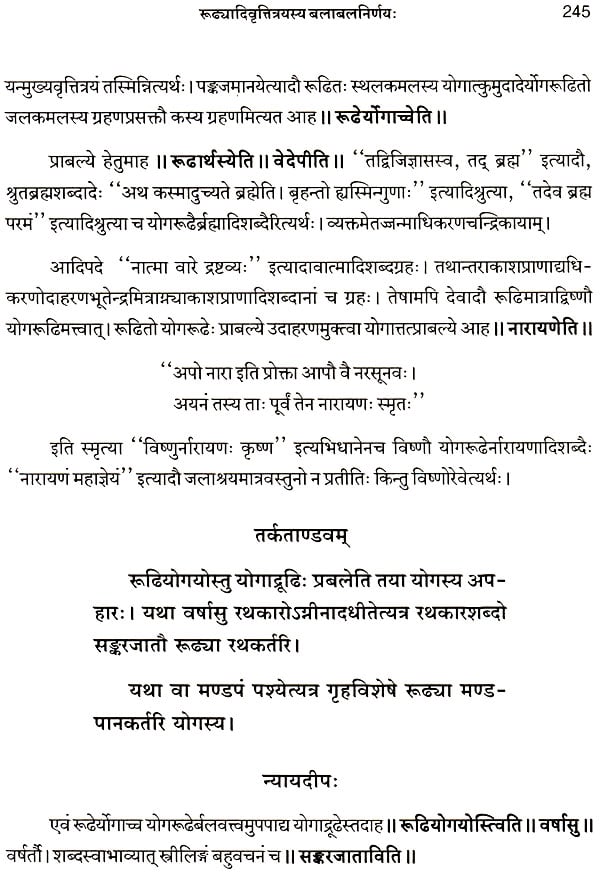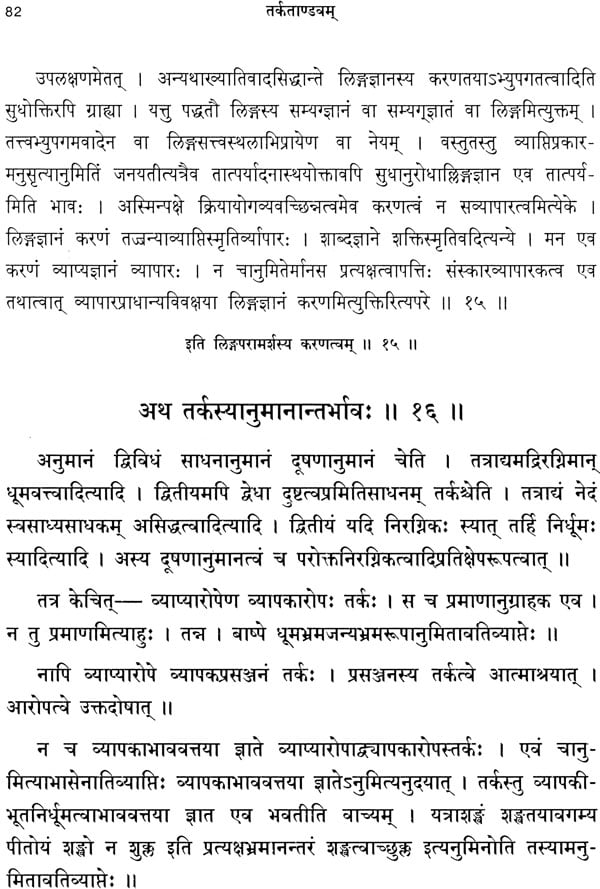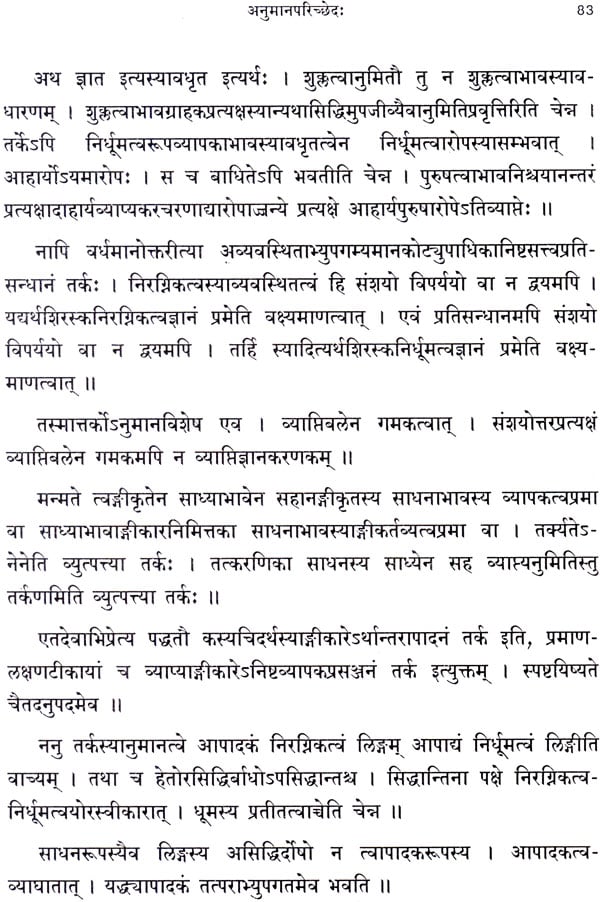
तर्कताण्डवम्: Tarka Tandavam (Set of 3 Volumes)
Book Specification
| Item Code: | NZG307 |
| Author: | श्री व्यास तीर्थ (Shri Vyas Tirtha) |
| Publisher: | Dvaita Vedanta Studies and Research Foundation |
| Language: | Sanskrit Only |
| Edition: | 2004 |
| Pages: | 1345 |
| Cover: | Hardcover |
| Other Details | 10.0 inch X 7.5 inch |
| Weight | 2.70 kg |
Book Description
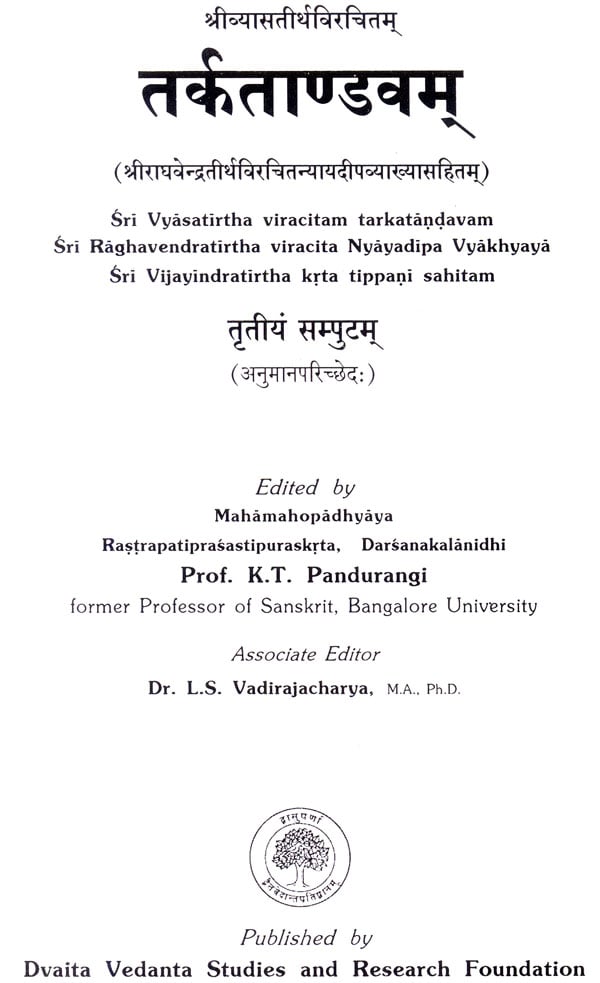
Every system of philosophy develops its own epistemology. In Indian Philosophy Nyaya has developed its epistemology in greater detail. It has set a model for other schools of Philosophy. Therefore it is called प्रमाणशास्त्र Realistic schools of Indian Philosophy broadly follow this model. However they differ from Nyaya in some important respects. Dvaita Vedanta is a realistic school of Philosophy. It differs from Nyaya in two important respects viz. प्रमाण्यस्वरूप and वेदपुरुषेयत्व Nyaya accepts परतस्त्वof प्रामाण्य while Dvaita accepts स्वतस्त्व of प्रामाण्य Nyaya holds the view that वेद is पौरुषेय i.e. ईश्वरकृत, while Dvaita holds the view that वेद is अपौरुषेय In respect of the nature and status of वर्ण i.e. syllables, also the two differ. Nyaya considers वर्ण as a quality of आकाश and अनित्य while Dvaita considers वर्ण as a separate द्रव्य and नित्य. The concepts of ईश्वर of these two schools of Indian philosophy differ. Dvaita does not accept समवाय relation and निर्विकल्पक stage of प्रत्यक्ष Dvaita concept of जाति also differs from that of Nyaya. Dvaita does not accept अनुगतजाति.
In respect of the nature of word meaning the theory of sentence formulation etc issues related to शब्दप्रमाण also the two schools considerably differ. In respect of the nature of व्याप्ति, the procedure of व्याप्तिग्रह number and nature of fallacies also the two schools considerably differ.
In two important manuals of Dvaita epistemology viz. प्रमाणलक्षण and प्रमाणपद्धति, these differences are noted. In अनुव्याख्यान and न्यायसुधा these are discussed in detail. However a consolidated presentation of these issues with an interdisciplinary approach was necessary. This is done in तर्कताण्डव by SrI Vyasatirtha in a masterly way.
Nyaya epistemology had reached its climax at the time of Gangesa, He has given a detailed exposition of Nyaya view in his Tattvachintamani. Sri Vyasatirtha takes it as a representative text and reviews the Nyaya view. He clearly points out the inadequacies of Nyaya view and presents the Dvaita view that improve upon it. Almost on all important issues of epistemology he verbetum quotes Tatvachintamani and reviews. He also quotes the views of other major writers of Nyaya such as Udayana, Yajnapati, Vardhamana and from Lilavati. Just as his Nyayamrta is a thorough review of advaita his Tarkatandava is a thorough review of Nyaya, It is very useful to the scholars and students of Nyaya to interospect on important concepts of Nyaya epistemology just as Nyayamrta is useful to introspect for advaita scholars.
This valuable work is arranged in three chapters. The first chapter deals with six topics viz. प्रमाण्यवाद , वेदापौरुषेयत्ववाद, ईश्वरवाद , वर्णवाद समवायवाद and निर्विकल्पवाद . The प्रमाण्यवाद and वेदापौरुषेयत्ववाद are the central themes. The other topics are intended to support these.
The second chapter contains a long section on शक्तिवाद All aspects of शक्ति are dealt with in this chapter. The theories of पदशक्ति and the theories of sentence meaning are discussed in detail. The views of Bhatta and Prabhakara are reviewed. These two chapters are included in the present vol. The Third chapter deals with अनुमान. This is put in the second volume. we give below a summary in English of the main point of these topics to enable the modern scholars to have an idea of the contribution of this valuable work to Indian epistemology. Particularly, the epistemology of Dvaita Vedanta.
Tarkatandavam of Sri Vyasatirtha is an important work of Indian epistemology. It deals with the problems of Sabdapramana and Anumanapramana. Among the six systems of Indian philosophy Nyayasastra or Tarkasastra is primarily concerned with epistemology. In this field, Tatvachintamani of Gangesha holds the central position. The entire Navyanyaya have is developed on the basis of this text. Though the writers of Navyanyaya have tried their best to provide definitions for these pramanas, some inadequacies still remain. Tarkatandava identifies these inadequacies and improves upon them.
Tarkatandava is primarily a detailed review of Tatvachintamani. In addition to this, the views of Bhatta and Prabhakara on this subject are also reviewed. The views of other schools of Vedanta on this subject are not reviewed here, since, these are dealt with in Nayayamrta and Tatparyachandrika of the author.
Prof. K. T. Pandurangi the Hon. Director of Dvaita Foundation has edited this valuable work. He has discussed the main issues in detail in his introduction in English. Sri Venkatesh Katti and Sri Nagendra Acharya Deshpande have helped him. We hope this volume will be useful to the Research scholars in Indian Philosophy.
We record our appreciation of the good work of Prof. Pandurangi and his associates and thank them for their excellent work which they have done.
